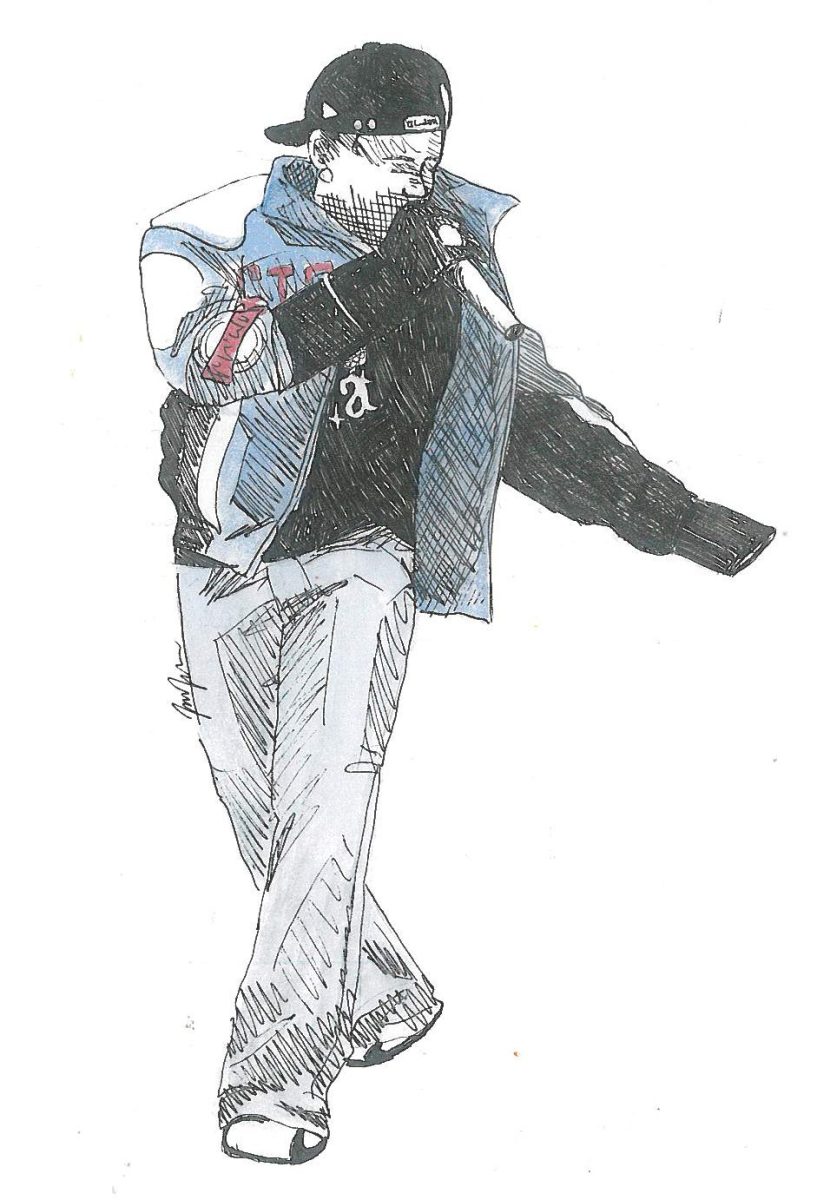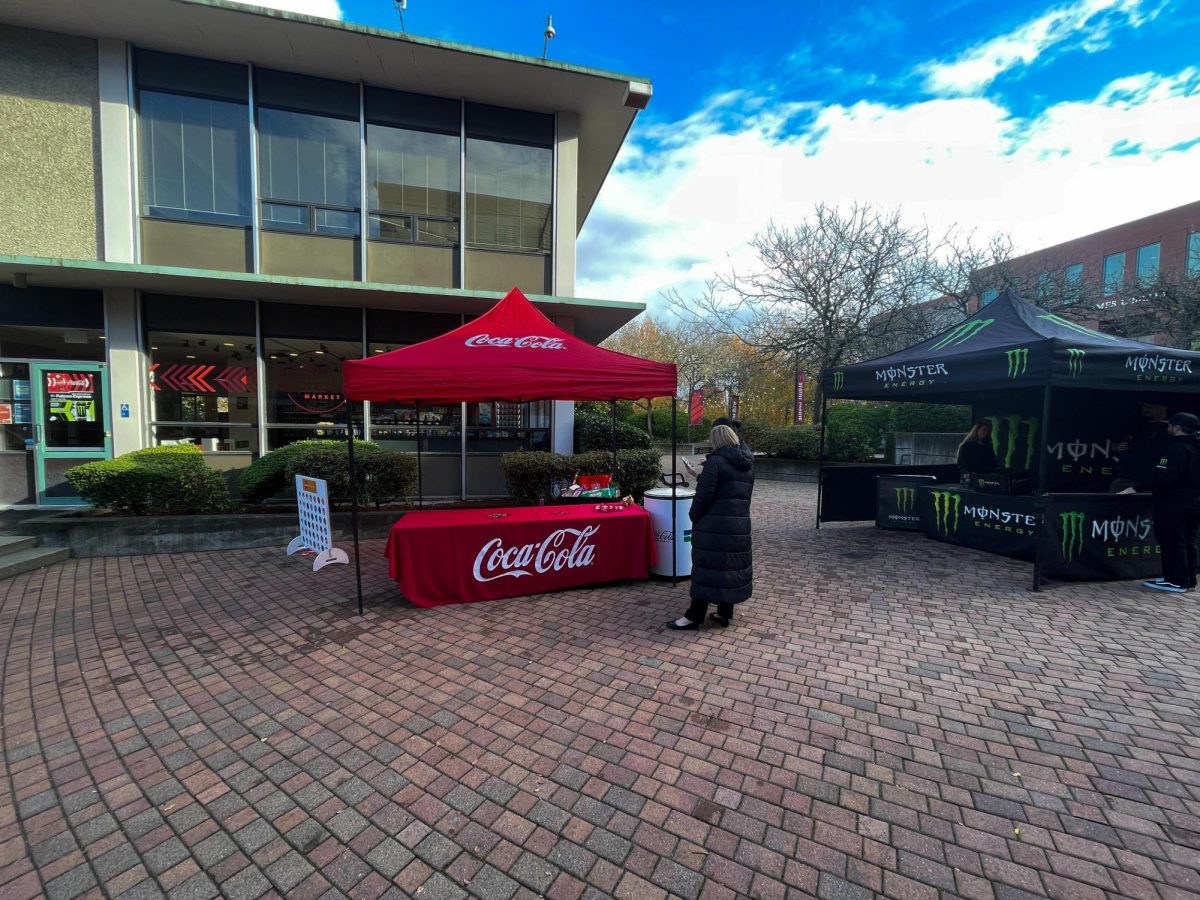Featured image: KSPU is one of the many leadership opportunities that students can participate in at SPU. Heidi Speck | The Falcon
Despite the many opportunities for leadership at SPU — from ministries, to student government, media, activities, and more — involvement is dropping significantly.
Many positions continue to stand open and have few to no applicants, despite it now being past the deadline to apply. While ASSP is campaigning on social media, posters, and more in order to garner more engagement, they are not seeing the numbers they would have hoped for.
This lack of involvement is not new; there have been several consecutive years of decreasing student engagement with and enthusiasm about campus leadership positions. While positions like Residence Advisors (RAs) and Student Ministry Coordinators (SMCs) tend to be fairly well applied for, other sectors such as Senate and Board of Student Media (BSM) often see uncontested or vacant positions.
Alonso Sanchez-Ramirez, ASSP Senator at large for this 2018-19 school year, has been heavily engaged with SPU leadership for the past year and spoke with the Falcon about his experience in leadership before and at SPU.
He joined leadership, he said, because he wanted to have a say in what goes on on campus in a more tangible way, and to be a voice for his fellow students.
“I really wanted to kind have [a] say in the actions that were happening, and also doing so in a way that keeps in mind everyone else. Put my voice to good use and do things with everyone in mind,” Ramirez-Sanchez explained.
Before SPU, he was involved in leadership in a less conventional, official sense; while he did not have a title, he took it upon himself to get involved.
“In my high school we put on different events throughout the year, and I was always unofficially a coordinator in that sense,” Ramirez-Sanchez explained.
One of the problems he sees in the leadership system at SPU is just that difference; he sees leaders taking action for students sometimes, but he does not see the same engagement from students who are not strictly in leadership positions. Mostly, he says, this is because he does not think students even know about the positions offered.
“People just kind of observe the position” he said, “or maybe they don’t even know what the position is.”
“A lot of people just don’t understand that these positions are there, and these things are going on around them. I just think it’s a matter of visibility as well.”
The visibility of campus leadership has been an ongoing trend in ASSP discussions this year, with many leaders — such as Nate Canny, recent Executive Vice President (EVP) Elect, in his speech at the candidate forums in March — vowing to use their platforms to spread awareness about leadership and the roles that ASSP and its specific senators hold.
It has become known that many students are not informed out leadership positions and what they do, and some leaders are working towards changing that.
“I believe leadership involvement has decreased at SPU due to the lack of advertising as well as the lack of impact it leaves on the students,” expressed student Tristen verdugo. “There may be inspiration within the first few weeks but then it just seems to die down, and the desire to be in this position is short lived.”
“SPU leadership should be advertised as a life changing experience and in so expressed as such. But unfortunately there just isn’t the right delivery for these current and new students, “ he continued.
Student Mireya Garcia also expressed frustration with the lack of visibility of leadership positions, and added that she feels that leadership positions can feel inaccessible or exclusive.
“SPU…needs to do a better job at being transparent about what these positions and organizations actually do. I feel like SPU is still catering to a specific kind of student. A lot of people don’t know about leadership positions,” Garcia said.
“I think a simple ‘hey, I think you would be a good fit for this position, check out the application’ would go a long way in letting people know. SPU needs a bigger pool of students to choose from.”
Garcia lead in the context of the Chinese Language and Culture club last year. Their club experienced difficulties dealing with ASSP, such as having their constitution denied and having no access to funding.
“ Not giving us a budget but expecting us to raise club attendance was just an unfair standard that we were held to,” she stated.
She expressed significant frustrations with the leadership system, saying that her experience trying to lead a club was difficult.
“My experiences with ASSP office were just awful,” expressed Garcia. “ I think that has to do a large part with that AS[S]P will only help you if your club is successful, but they won’t give you the tools for success.”
Despite Garcia’s negative feelings towards her leadership experience, she still does not feel that SPU leadership is inherently negative.
“I value the opportunity to participate in leadership, and I always try my best to encourage people to try out for leadership,” she said.
Ramirez-Sanchez’s opinions on the visibility of leadership and its involvement with students aside, he also cites his experience in leadership at SPU as generally positive, and says that he has enjoyed his roles here.
“It’s been really good. It’s really diverse, which is amazing to see,” Ramirez-Sanchez said. “Seeing these diverse people, you get to hear all different kinds of perspectives…it has taught me a lot, about different things and different people.”
Hill Resident Advisor Maggie Taylor has a similar stance on her time in leadership, saying it has been generally good and she has enjoyed her responsibilities.
“I’ve loved my experience, I really wouldn’t have wanted to do anything else with my time,” said Taylor. “The two floors that I’ve had the pleasure of leading have been so good and I’m so grateful for the opportunity. Of course moments are stressful in trying to balance being a good RA, a good student, and a whole person.”
Verdugo also expressed appreciation for leaders and the time they dedicate.
“I appreciate how these people in leadership are excited and eager to be in their position. Their position is a position of influence and inclusiveness and they definitely take that seriously. They are always looking out for students and finding ways to spread joy on SPU campus.”
SPU President Daniel Martin agrees that SPU’s leadership is on a positive track, even if the involvement numbers do not reflect it. He expressed satisfaction with the current leadership system and the students within it.
“I think those who pursue it and are elected feel as though they have a passion for the role which they pursue, I think they fulfill the responsibilities of the role to the best of their ability,” Martin said.
“Here at SPU I think there’s a wonderful network of students that support student leadership, that work with a variety of committees and clubs..I’ve found that to be an effective way to engage the rest of the campus.”
With the time it takes to be a student leader, and the dedication of many such students,
Martin says that he thinks involvement may be going down due to the busyness of student schedules, and their many other responsibilities, much as Ramirez-Sanchez stated.
“It’s something that I’ve seen ebb and flow over time, but over the long haul it’s trended down over the years for a number of reasons,” said Martin.
“I think today’s student’s lives are much busier and more full than they have been in the past; whether that’s employment, family responsibilities, the number of hours, the discipline. Whatever that is, it seems there are more things taxing a students life.”
Taylor expressed similar sentiments, saying that she sees involvement dropping due to the balancing act that many college students are constantly performing, and employment issues.
“I think there is a good chance that involvement in leadership at SPU is dropping because people are less jumping into leadership just for the sake of having it on their resume,” Taylor explained.
“As SPU gets more expensive, most people are having to find paying positions in order to stay at SPU. I think also in the case of RA, there are a lot of people who after two years want to live off campus, so I think our application numbers are most likely dropping due largely to that.”
Martin also notes the short terms of service for student leaders could be a contributing factor: most positions run for one year, meaning applications and elections for the coming year begin at the end of winter quarter. This feels rushed to Martin, who thinks students might benefit for more time to adjust to the specificities of their roles.
He said that one thing student leadership could consider is “ being able to extend the term of office in a way that would allow for greater influence over a period of time, greater than a single year.”
He continued, saying “it is a challenge, being a quarter institution, having a short fall quarter, and then by the time you’re in winter quarter it’s time to start gearing up for the next year’s elections.”
“It shortens the effectiveness of the role,” he explained. “Even though there’s a third of the year still remaining for their engag. I don’t know if there’s another way to think about it, but that may be one way to increase effectiveness.”
Other than that, which he admits is difficult to fix, he has nothing but praise for SPU leadership. He hopes to see the engagement increase in coming years, but understands that it is a difficult undertaking with busy student schedules to contend with.
He also knows that current student leaders are putting their best efforts in, and expressed contentment with the current system.
“I’ve always been pleased with the student leaders that I’ve interacted with, they have an understanding of their role, the responsibilities of their role, and they really want to serve the student body well”






















































































